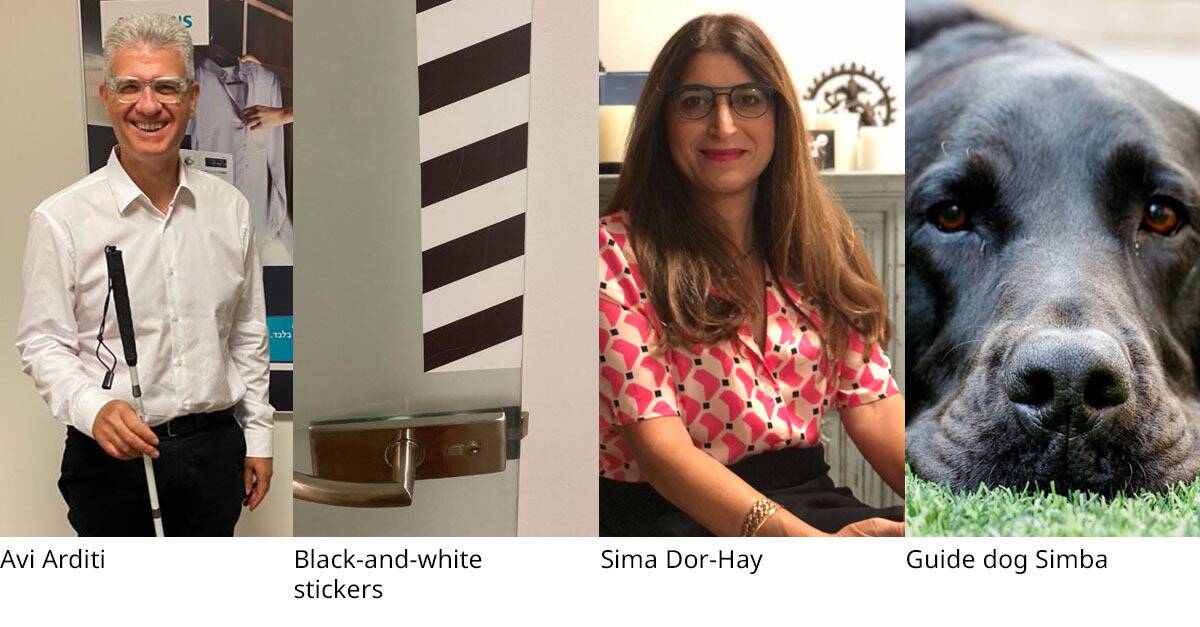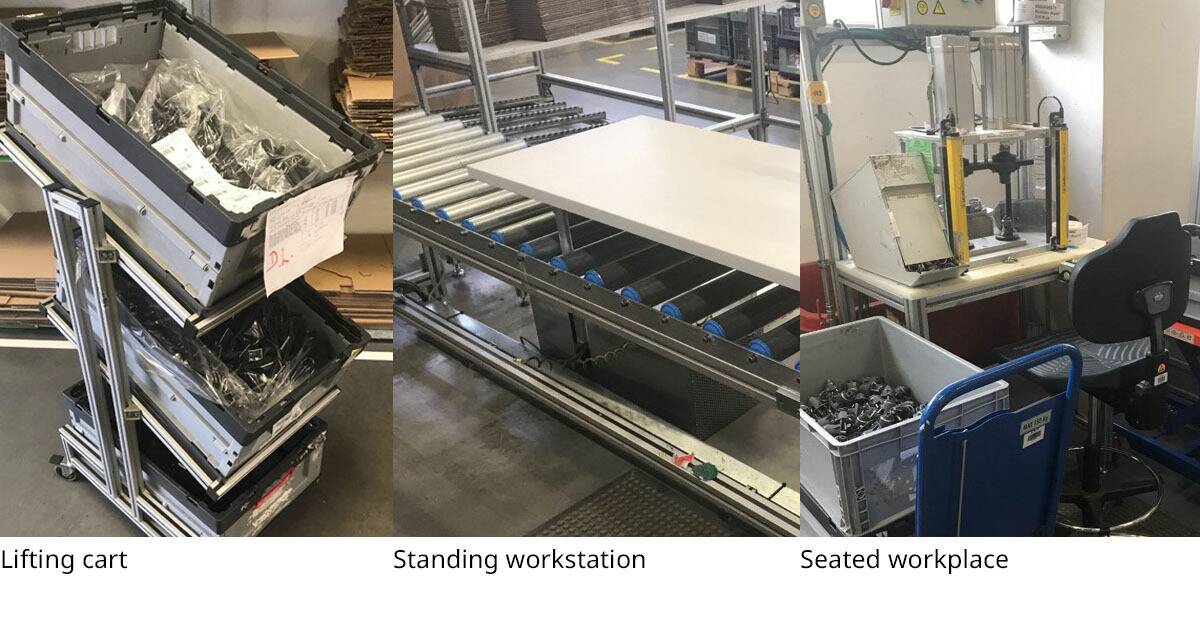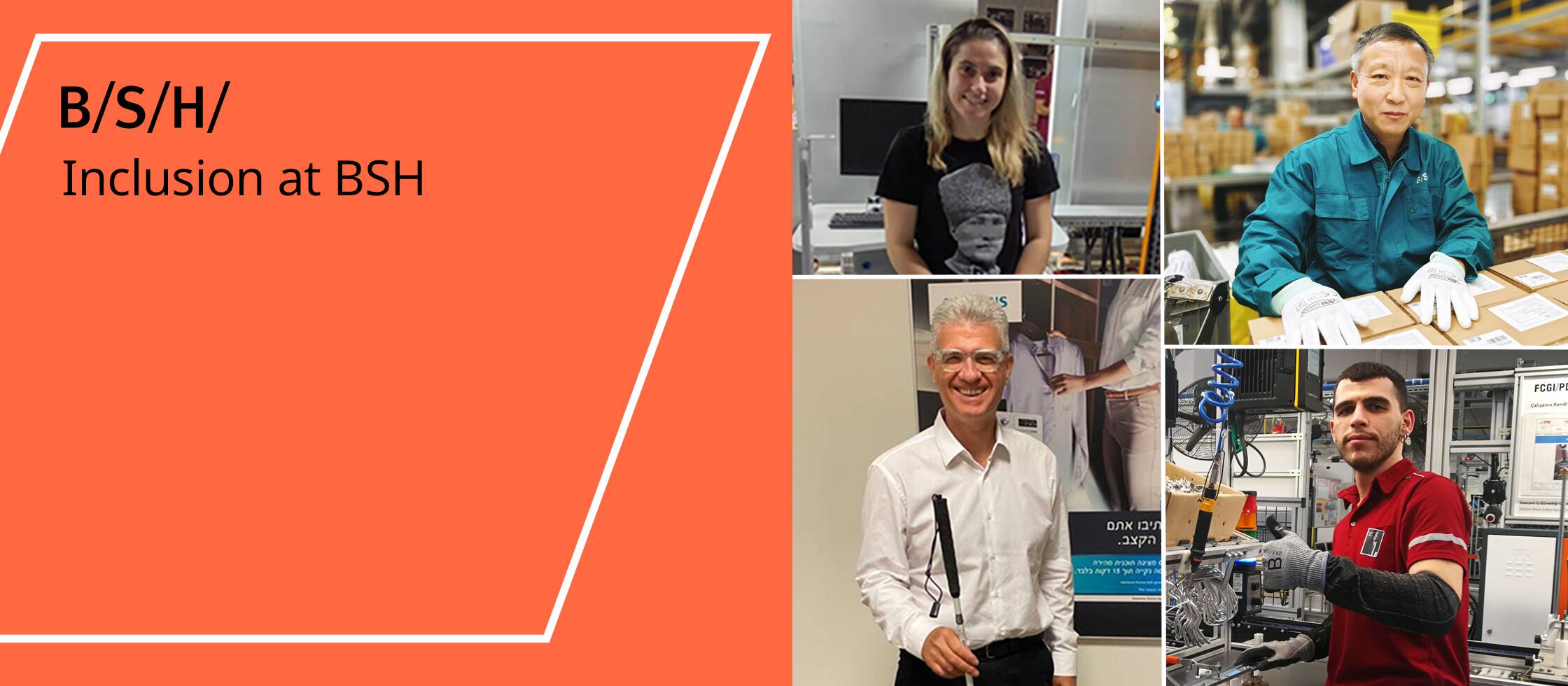Embracing inclusivity and special abilities
Reading time: 5 minutes
At BSH, we recognize the strength, resilience, and diverse abilities of our employees worldwide and aim at creating a work environment in which everyone feels seen, heard, and valued. To really achieve this, we have to be aware of our peoples’ needs and encourage them to express them openly – particularly if they have special demands. Equity and inclusion are among our core values, which is why we want to raise awareness for people with disabilities and how you can support them. To create this blog post, we have talked to colleagues from around the world. One of the stories that impressed us particularly is the story of Avi Arditi, Key Account Manager at BSH Israel.
Seeing Beyond Sight: Avi Arditi on embracing help and inclusion
“I feel so much more freedom,” states Avi Arditi. “I live a healthy life, I have a wonderful family and friends, have a job that I love and I work with clients, which is also something that I love to do.” A few years ago, Avi’s life changed as he started losing sight, gradually getting blind due to an illness known as RP (Retinitis Pigmentosa). Today, he is ready to share his story, but in the beginning, it was troubling him as he had concerns that he would lose his job. “At first, I thought he was arrogant,” says Sima Dor-Hay, colleague and former Head of HR. “I didn’t really know him and witnessed that he asked other colleagues to make his coffee instead of doing it himself. At the early stage of the illness, only a close circle of colleagues knew about it - I was not one of them. Not knowing his individual situation, I judged him for that. Once I learned about it from Avi, we became a great team and even friends.” This close relationship made Avi and Sima share the story in a session they held together during BSH’s Diversity Week.
“Understanding your disease and limitations takes time, but at a certain moment, you cannot hide it anymore and must accept it,” says Avi. For him, the moment of acceptance came when he needed a white stick to find his way around. “Back then, I didn’t dare to ask for help, so I was glad that Sima and other colleagues saw my needs. To learn how to adapt the work environment to Avi’s needs, Sima approached a non-profit organization specialized in inclusion of people with disabilities in the workplace. They gave them simple solutions to make the office more accessible, showing once again that small things can make a big difference. If you visit the office of BSH Israel, you can see black-and-white stickers on the walls and doors. This very simple and low-cost solution made a huge difference for Avi since they make it easy for him to find his way around the office without guidance.
Later on, when Avi realized his vision was getting worse and felt less secure, especially in the outside world, he decided to get a guide dog. But also this was a huge step for him, a journey of self-acceptance that took over a year. To accustom the dog to the workplace, it received special training. However, also the humans needed to be trained: Instead of petting the dog, they had to ignore it in the beginning. To make it easier for everyone, Sima created a guide for the team and clients, so they knew how to behave with the dog “Simba”, who is now a cherished team member of BSH Israel and even has its own BSH badge and a special place for its leash, water, and dog basket.

“It was a journey for all of us and it made our world bigger,” says Sima. “Seeing how Avi handled the situation and adopted a growth mindset, showing his vulnerability, asking for help and especially allowing so many people around him to grow with him, was simply remarkable. I am grateful to know him.”
“Now I know that asking for help is easy and it can change your life. And it also changes the lives of the people giving help,” affirms Avi. “In Avi’s mind. it was a burden on people,” says Sima, “but actually for us, it was a privilege.”
Avi’s story definitely shows us that if there is a will, there is a way. In a psychologically safe work environment, you are able to open up and overcome obstacles together. Moreover, it serves as a reminder: Try to look at the world from someone else’s eyes; it will make you discover new things.
Catering to special needs around the world
Disabilities come in many shapes and are mostly not apparent at first sight. Hence, it is important to look at the individual needs of the employees and find solutions. In Spain, for instance, BSH collaborates with the “Association of Deaf People of Aragon” to ensure a good integration of the hearing-impaired workers at the factory in Montañana. Based on the association’s recommendations, they employ simultaneous translators for trainings and put up visual measures like screens for communication purposes. In Turkey, BSH also trains workers in sign language, so they are able to better communicate with their hearing-impaired colleagues, which strengthens the team spirit.
Ergonomics also play a big role in inclusion efforts. As the example of BSH in Slovenia shows, workplaces can also be adjusted to diverse needs. In the production, they offer seated and standing workplaces, lifting carts to avoid heavy lifting, and adjust the working hours of employees with disabilities.
Avi’s story and China’s “Caring Positions” program address that you are not always born with a handicap – an illness might make it impossible for you to pursue your career as you did before. The “Caring Positions” in China have already helped about 100 employees suffering from serious illnesses to keep up a routine, while meeting their needs. Based on an employee’s medical condition, they adjust the workplace, working hours, and labor intensity to give them support and retain their employees as good as possible.
These are just a few easy examples of how we drive inclusion of people with disabilities at BSH, showing that it does not take great efforts and enriches the diversity of our company.





